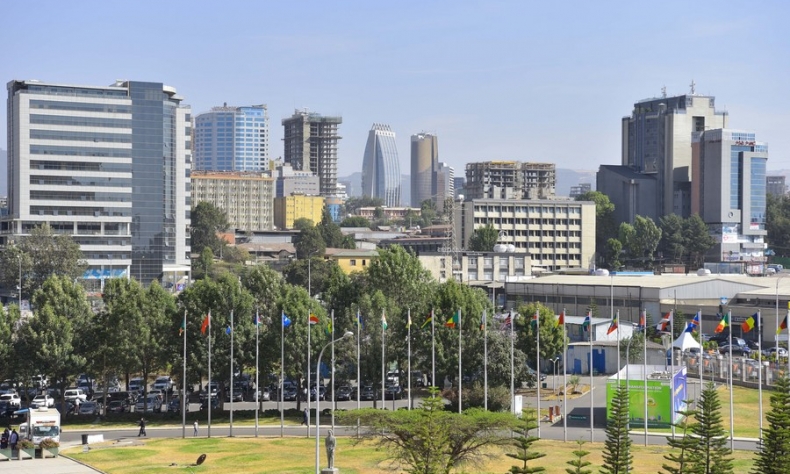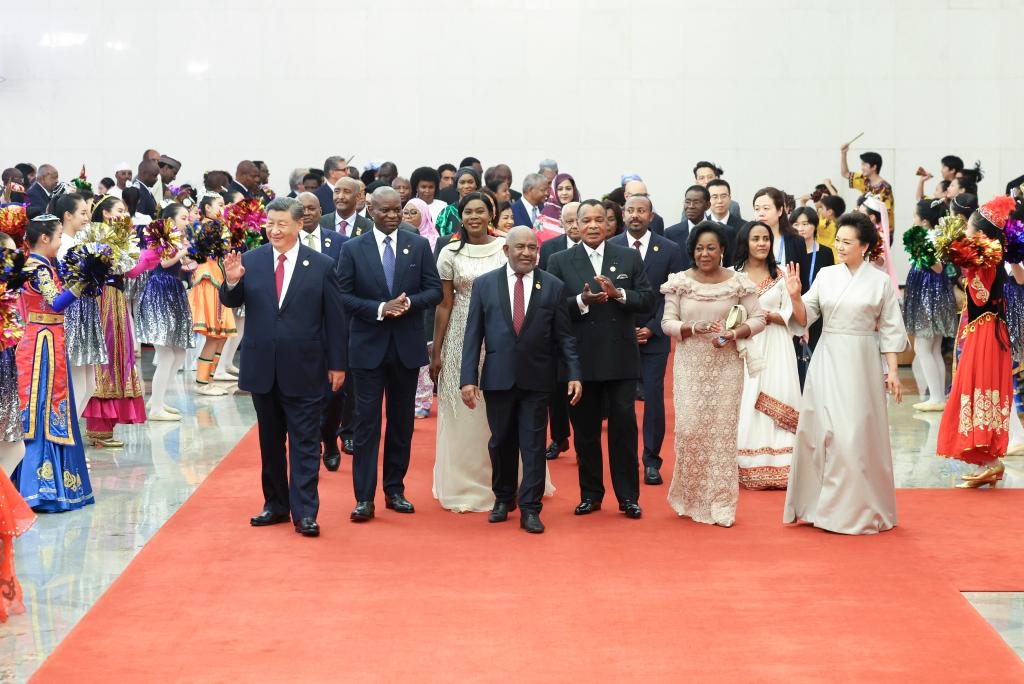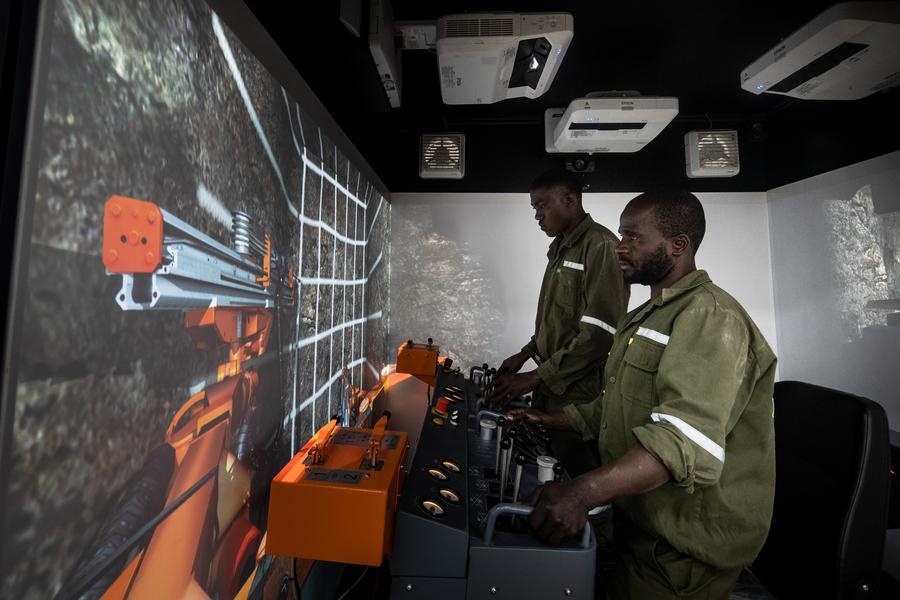FOCAC Summit Marks Significant Step in Long Journey of Africa’s Complete Emancipation

China is the greatest ally of the countries and peoples of Africa in that struggle for complete emancipation and the 2024 FOCAC Summit marks a significant step in that long journey.
Meeting in Beijing from 4 to 6 September, this year’s Summit of the Forum on China-Africa Cooperation (FOCAC) has been repeatedly described by China as its most important diplomatic event of 2024.
Considering the frenetic pace of Chinese diplomacy, this is a bold claim. But it is also a modest one. It can also easily lay claim to being the most important global diplomatic gathering in 2024.
Hosted by President Xi Jinping, the summit was attended by leaders from 53 African countries, along with the chairperson of the AU Commission and the secretary-general of the United Nations, as well as representatives of over 30 international and reginal organisations.
Delivering a keynote address at the opening ceremony on the morning of 5 September, Xi said that, “Thanks to nearly 70 years of tireless efforts from both sides, the China-Africa relationship is now at its best in history.” On his proposal, bilateral relations between China and African countries having diplomatic ties with China have been elevated to the level of strategic relations and the overall characterisation of the China-Africa relations has been elevated to an all-weather China-Africa community with a shared future for the new era.
Modernisation was a key theme of the Chinese leader’s address. He noted: “Modernisation is an inalienable right of all countries. But the Western approach to it has inflicted immense sufferings on developing countries. Since the end of World War II, Third World nations, represented by China and African countries, have achieved independence and development one after another, and have been endeavouring to redress the historical injustices of the modernisation process.”
China and Africa, he noted, account for one-third of the world population. “Without our modernisation, there will be no global modernisation.”
Addressing a welcoming banquet he hosted together with his wife Peng Liyuan on the eve of the opening of the forum, President Xi said:
“The China-Africa community with a shared future is deeply rooted in our traditional friendship. Since the mid-20th century, we have been fighting shoulder to shoulder against imperialism, colonialism, and hegemonism, and advancing hand in hand along the path of development, revitalisation, and modernisation. China-Africa friendship remains robust and is growing stronger through generations no matter how the world changes.”

Long connection
This long historical connection between the peoples of China and Africa is all too often ignored, suppressed or dismissed in the West. Rhetoric from politicians and biased and ignorant media reporting all too often assert that China’s ties with Africa began only in the very recent period as an economically booming China required large-scale access to minerals and raw materials.
This is far from the truth. In his autobiography, Long Walk to Freedom, Nelson Mandela recalls how he sent his deputy Walter Sisulu, a key figure in the African National Congress, to seek the support of China for the anti-apartheid struggle as far back as 1954. Before the launch of the armed liberation struggle in 1961, the South African liberation movement sent leaders to China to seek the advice and support of Chairman Mao Zedong. As a young communist in the 1970s, I heard from South African exiles how the arrival of copies of China Reconstructs (the forerunner of China Today), smuggled at considerable risk into the country, were eagerly awaited, and passed from hand to hand, as a source of inspiration and hope.
Such long, historic, and still vibrant connections were referenced again and again in Beijing in the first week of September, as President Xi found the time to meet bilaterally some 40 African leaders. Eritrea’s President Isaias Afwerki reminded his Chinese counterpart that he first visited China 57 years ago, when he was one of a number of young Eritrean freedom fighters invited to receive military and political training in the country. He added that over the past half century and more, he has witnessed firsthand China’s great development achievements and transformative changes. China, he added, is helping and will continue to help African countries achieve greater development, resist colonialism and hegemonism, and gain equality and dignity in the international community.
The contrast between the equality accorded in Beijing and the peremptory treatment bordering on racism accorded to them in Washington will not have been lost on the African leaders. In contrast with President Xi’s 40 bilaterals, when the U.S.-Africa Leaders Summit was held in December 2022, U.S. President Joe Biden could just about stir himself for one bilateral – with President Sisi of Egypt; and that on account of U.S. security interests rather than any respect for Egyptian sovereignty leave alone its ancient civilisation.
‘A hint of realism’
Such is the stark contrast that, amidst the usual patronising cynicism, a hint of realism even managed to penetrate the Western media.
On 5 September, the Financial Times reported, “However, while the U.S. and others were becoming more active in the continent, China retained an edge through strong people-to-people ties and its narrative of being a ‘developing country’ assisting its partners in the global south along the path of industrialisation, said Jana de Kluiver, research officer at the Institute for Security Studies in Pretoria, South Africa. The U.S. strategy, by contrast, came across as being more of an anti-China policy than an Africa policy, she said.”

On 4 September, the New York Times quoted Deborah Brautigam, director of the China Africa Research Initiative at Johns Hopkins University’s School of Advanced International Studies, one of the few serious Western scholars of China- Africa relations, as saying that “the summit follows months of behind-the-scenes diplomacy between Chinese and African officials. ‘You can contrast this with how we do things in the U.S., where engagement is far more ad hoc.’”
The paper went on to note: “China has also won support on the African continent for the position it has taken on Israel’s war in Gaza. Beijing has brought rival Palestinian factions together for talks as it has sought a bigger diplomatic role in the Middle East. It has asserted its longstanding support of Palestinian statehood and criticised Israel’s bombardment of the region. That position aligns China with countries like South Africa, which has called Israel’s policies towards Palestinians an ‘extreme form of apartheid.’ A joint China-South Africa statement … cited the two countries’ shared interest in an ‘immediate cease-fire and end to all fighting’ in Gaza.”
The 3 September report from the financial news service Bloomberg should therefore not be too surprising: “China remains the major foreign power with the biggest positive influence on Africa’s youth, a new survey shows, indicating the limitations of a drive by the U.S. to bolster its standing on the continent. Eighty-two percent of young Africans consider Beijing’s influence on the continent as positive.”
As President Xi often reminds us, the best person to judge whether or not the shoe fits, is the one who wears it. China has never invaded, colonised or occupied an African country. It has never instigated a coup d’etat. It has never engaged in the abominable slave trade.
Let us contrast this record with that of the capitalist West, encapsulated in very few words by two of humanity’s greatest thinkers:
Karl Marx wrote, “The turning of Africa into a warren for the commercial hunting of black skins, signalised the rosy dawn of the era of capitalist production.”
Mao Zedong said, “The evil system of colonialism and imperialism arose and throve with the enslavement of black people and the trade in black people, and it will surely come to its end with the complete emancipation of the black people.”
China is the greatest ally of the countries and peoples of Africa in that struggle for complete emancipation and the 2024 FOCAC Summit marks a significant step in that long journey.
The author is a consultant and analyst on international relations and co-editor of Friends of Socialist China based in London.
 Facebook
Facebook
 Twitter
Twitter
 Linkedin
Linkedin
 Google +
Google +










